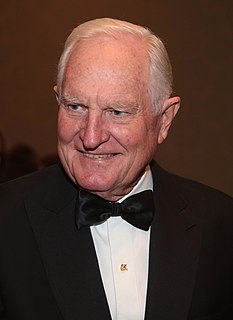A Quote by Thomas Hardy
I may do some good before I am dead--be a sort of success as a frightful example of what not to do; and so illustrate a moral story.
Related Quotes
If one loves stories, then one would naturally love the story of the story. Or the story behind the story, pick your preposition. It does seem to me to be a kind of animal impulse almost, a mammalian curiosity. For a reader to wonder about the autobiography in a fiction may be completely unavoidable and in fact may speak to the success of a particular narrative, though it may also speak to its failure.
People say all the time 'I don't have a good testimony' because they think their story has to involve some dramatic story of change from 'bad' to 'good'. But Jesus didn't come to save people this way. Sin doesn't make us bad it makes us dead. Jesus came to save by bringing the dead to life. And that's an amazing testimony.
About belief or lack of belief in an afterlife: Some of you may know that I am neither Christian nor Jewish nor Buddist, nor a conventionally religious person of any sort. I am a humanist, which mean, in part, that I have tried to behave decently without any expectation of rewards or punishments after I'm dead.
I am human. I am messy. I'm not trying to be an example. I am not trying to be perfect. I am not trying to say I have all the answers. I am not trying to say I'm right. I am just trying - trying to support what I believe in, trying to do some good in this world, trying to make some noise with my writing while also being myself.
Before I begin a novel I have a strong sense of at least one central character and how the story begins, and a more vague sense of where things may wind up, but at some point, if the novel is any good at all, the story and characters take on lives of their own and take over the book, and the writer has to be open to that.
In a free country, America, or India, and Japan, and many places, democracy country, free country, but still within the sort of rule of law, some injustice, some sort of problems, some discrimination, and also some sort of scandals or the corruptions. These things, you see, they are always in my mind, I think many people agree, lack of moral principle.
I believe a good writer can write a good book with any sort of character, in any sort of setting, but I prefer to write about the outsider. It might just be because I've been one (or perceived myself to be one) for so much of my life. But the simple fact of being marginalized immediately brings conflict to a story before the narrative even begins, and that's gold for a writer because it means that your character already has depth before events begin to unfold.
I am good in the fact that most of my reviews have been very positive really. I get pretty good reviews. There have been some that aren't - critical. I think they are extremely - the people that wrote them really don't understand what they are looking at quite frankly or have a very preconceived notion of what conceptual art should be or where I am at or the fact that I may change what I have done from what I did 20 years ago. But there is always some reason that they just sort of get it wrong. And so it certainly doesn't affect my work.
Most really good fiction is compelled into being. It comes from a kind of uncalculated innocence. You need not have your ending in mind before you commence. Indeed, you need not be certain of exactly what's going to transpire on page 2. If you know the whole story in advance, your novel is probably dead before you begin it. Give it some room to breathe, to change direction, to surprise you. Writing a novel is not so much a project as a journey, a voyage, an adventure.
A good story isn't the one that shuts everyone down and sort of leaves them in silent awe. A good story is one that, even before you finish the anecdote, you can see their eyes shining because it has so resonated with something from their own lives that everyone in the group has a version of the same story and they cannot wait to tell it, and that they're going to compete to make their version even more extreme than your version. So your version is just a seed.






































